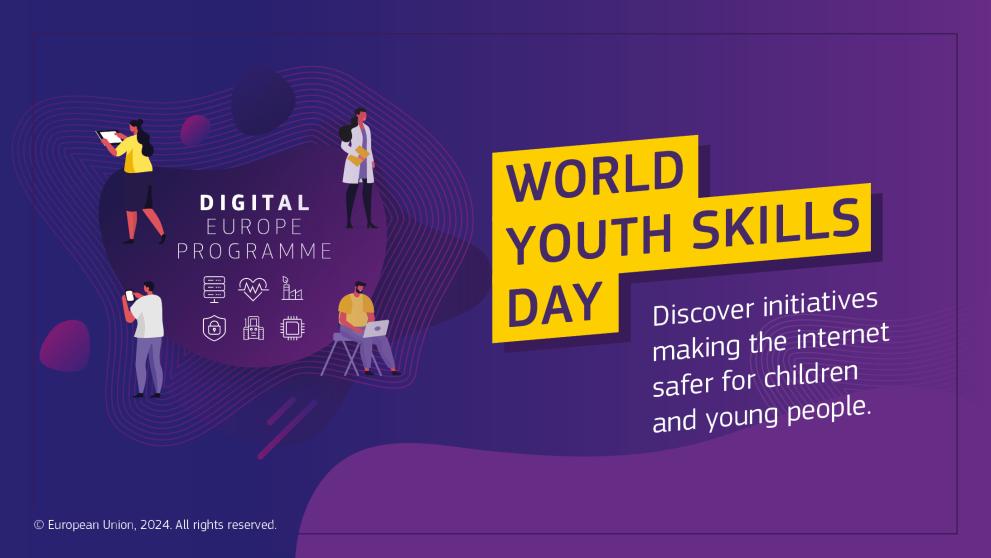
European Health and Digital Executive Agency (HaDEA) implements several initiatives enhancing digital skills of youth people. Through the Digital Europe Programme, HaDEA contributes to boosting digital skills of young pupils, in particular girls, with the goal of mitigating the significant shortage of professionals skilled in advanced digital technologies and information and communication technology (ICT). This initiative also aligns with the ambitious goal of the Digital Decade to have 20 million ICT specialists by 2030.
In addition, within the framework of updated strategy for a better internet for kids (BIK+), HaDEA is also supporting initiatives making the internet a safer environment for children and young people by strengthening the protection and empowerment at European, national and international level.
Some initiatives implemented by HaDEA are the following:
- EU Code Week.
This is a grassroots initiative launched in 2013 that aims to spread computational thinking, coding, computing and related digital skills such as robotics, AI, hardware, app making, etc. to as many young people as possible, putting a special focus of in boosting digital skills of young girls. At the heart of EU Code Week are volunteers – Code Week ambassadors and leading teachers – from around the world. Code Week can help more young people to discover and master the basics of coding and computational thinking and make them interested in pursuing studies and careers in computing/computer science and in advanced digital technologies. EU Code Week supports the targets of the Digital Education Action Plan to cut in half the number of 13-14-year-olds who underperform in computing and digital literacy. From this year, the Code Week is supported through the project Code4Europe that gathers 45 partners throughout Europe. - European network of national Safer Internet Centres (SICs).
SICs are national hubs that provide educational resources for children and youth, among other types of support. Over the years, Safer Internet Centres (SICs) in Europe have developed various educational resources and videos aimed at helping teachers, parents and carers, and children and young people, to discover the online world safely. From the outset, SICs have equipped the youth with valuable digital skills with the organisation of a total of 2326 training events, including informal sessions for teenagers in youth centres and other facilities, as well as pedagogical activities for children in primary school.
Background
The Digital Europe Programme (DIGITAL) aims to build the strategic digital capacities of the EU and to facilitate the wide deployment of digital technologies. With an overall budget of €7.5 billion, out of which €0.8 billion is managed by HaDEA, the programme support investments in the area of ‘Advanced Digital Skills’, aimed at contributing to the attainment of the ambitious target set by the Digital Decade and at supporting the EU education and training institutions in digital areas, also by encouraging their cooperation with research and businesses, in synergy with the actions put in place by EU countries, also in the context of their Recovery and Resilience Plans.
Details
- Publication date
- 14 July 2024
- Author
- European Health and Digital Executive Agency
- Programme Sector
- Digital
- Programme
- Digital Europe Programme
